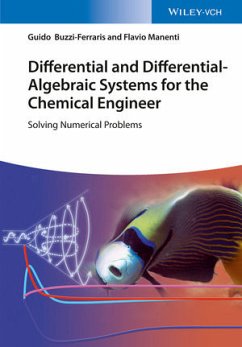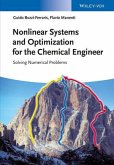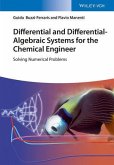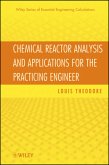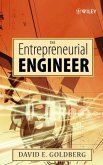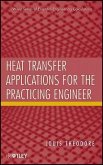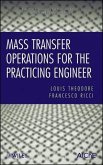Engineers and other applied scientists are frequently faced with models of complex systems for which no rigorous mathematical solution can be calculated. To predict and calculate the behaviour of such systems, numerical approximations are frequently used, either based on measurements of real life systems or on the behaviour of simpler models. This is essential work for example for the process engineer implementing simulation, control and optimization of chemical processes for design and operational purposes.
This fourth in a suite of five practical guides is an engineer's companion to using numerical methods for the solution of complex mathematical problems. It explains the theory behind current numerical methods and shows in a step-by-step fashion how to use them.
The volume focuses on differential and differential-algebraic systems, providing numerous real-life industrial case studies to illustrate this complex topic. It describes the methods, innovative techniques and strategies that are all implemented in a freely available toolbox called BzzMath, which is developed and maintained by the authors and provides up-to-date software tools for all the methods described in the book. Numerous examples, sample codes, programs and applications are taken from a wide range of scientific and engineering fields, such as chemical engineering, electrical engineering, physics, medicine, and environmental science. As a result, engineers and scientists learn how to optimize processes even before entering the laboratory.
With additional online material including the latest version of BzzMath Library, installation tutorial, all examples and sample codes used in the book and a host of further examples.
This fourth in a suite of five practical guides is an engineer's companion to using numerical methods for the solution of complex mathematical problems. It explains the theory behind current numerical methods and shows in a step-by-step fashion how to use them.
The volume focuses on differential and differential-algebraic systems, providing numerous real-life industrial case studies to illustrate this complex topic. It describes the methods, innovative techniques and strategies that are all implemented in a freely available toolbox called BzzMath, which is developed and maintained by the authors and provides up-to-date software tools for all the methods described in the book. Numerous examples, sample codes, programs and applications are taken from a wide range of scientific and engineering fields, such as chemical engineering, electrical engineering, physics, medicine, and environmental science. As a result, engineers and scientists learn how to optimize processes even before entering the laboratory.
With additional online material including the latest version of BzzMath Library, installation tutorial, all examples and sample codes used in the book and a host of further examples.
Dieser Download kann aus rechtlichen Gründen nur mit Rechnungsadresse in D ausgeliefert werden.

